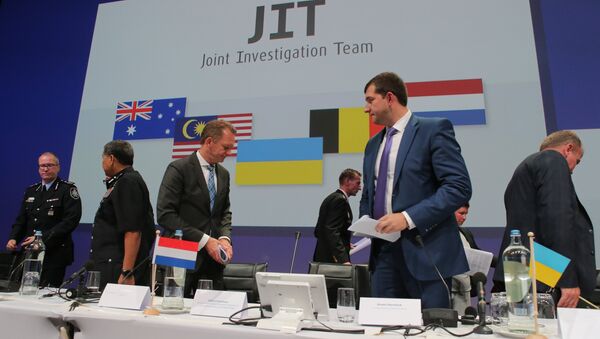"Not Russia 'refuses to work with the investigation', but the JIT itself is matching the problem with an answer prepared beforehand," the source said.
"It only admits such 'cooperation' that confirms the blame placed on us. And immediately rejects any doubts, whoever voiced them. Russia has repeatedly confirmed, not in word, but indeed, its readiness to work jointly in full compliance with the requirements of UNSC Resolution 2166," he said.
The Boeing 777 of Malaysia Airlines heading to Amsterdam from Kuala Lumpur was downed near the city of Donetsk in eastern Ukraine on 17 July 2014. All 298 people aboard, mainly Malaysian and Dutch citizens, were killed in the incident.
Following the crash, the Netherlands established the Joint Investigative Team (JIT) to conduct an inquiry into the case. Moscow, however, was excluded from the investigation process but conducted its own research.
As a result of its investigation, the JIT has accused four individuals – three Russians and a Ukrainian – of playing a significant role in the incident.
The Russian Foreign Ministry has described the investigation as “biased and one-sided”, saying that the investigators have ignored evidence provided by Russia, including Russian radar readings.
Both the JIT and Russia agree that the aircraft was downed by a Buk missile. Moscow, however, insists that the missile belonged to Ukrainian forces, as in Russia, the missile was taken out of service back in 2011.
Besides the JIT, the incident was investigated by the Dutch Safety Board, which pointed out mistakes on the Ukrainian side, notably their failure to close the country’s airspace amid the raging conflict in the area.
Commenting on the results of the investigation, Malaysia’s Prime Minister Mahathir said that there is no sufficient evidence to blame Russia for the crash since some of the JIT findings do not seem "quite right."


